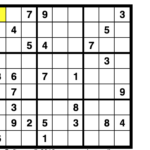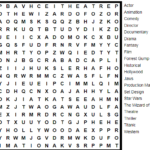 Maybe your mother is forgetful about where she leaves her keys; or maybe your husband can never recall your neighbor’s name. How do you know when – or if – this forgetfulness has evolved from normal aging to a disorder of the brain, such as Alzheimer’s disease?
Maybe your mother is forgetful about where she leaves her keys; or maybe your husband can never recall your neighbor’s name. How do you know when – or if – this forgetfulness has evolved from normal aging to a disorder of the brain, such as Alzheimer’s disease?
When It Just Means You’re Getting Older
Not all memory problems are caused by Alzheimer’s Disease. Sometimes forgetfulness is just a normal part of aging. Known as “mild forgetfulness,” normal aging of the brain could, for example, cause someone to:
- forget a word sometimes
- lose things occasionally
- miss making a payment on a bill
- forget what day it is, but then remember later
When a Medical Condition is Part of the Problem
Dylan Wint, M.D., our NV Energy Chair for Brain Health Education, says “Every good neurologist knows that the purpose of the body is to serve and protect the brain. Things that go wrong in the body almost always affect the brain in someway.”
Some medical conditions, both irreversible and reversible, can contribute to changes in memory and thinking abilities.
- tumors, blood clots or infections in the brain or body
- head injury
- alcoholism
- thyroid, kidney or liver disorders
- side effects from medications
- lack of certain vitamins (like B Vitamins)
- hormone problems
- stress, anxiety or depression
Reversible contributors to changes in memory and thinking include vitamin deficiency, depression/anxiety, hormone problems, alcohol, medications, toxins and some medical conditions.
When You Should Be Concerned
Alzheimer’s disease rarely affects people under the age of 60. If memory problems have become troubling for you or you are worried about a loved one, it may be helpful to know the warning signs of Alzheimer’s. Seek the advice of a doctor if you or a loved one are experiencing any of the signs below.
- Completely forgetting recently learned information or important dates and events.
- Having trouble following a plan, such as a familiar recipe, or working with numbers.
- Having trouble completing daily tasks, such as driving to a familiar location.
- Being confused about the date, the season or the passage of time.
- Developing vision problems such as difficulty reading, judging distances or determining color or contrast.
- Having new problems with written or spoken words.
- Putting things in unusual places and having trouble finding them.
- Making poor decisions and paying less attention to hygiene.
- Withdrawing from work or social activities because of an inability to keep up.
- Becoming confused, depressed, anxious, afraid or upset easily.
For links to resources regarding brain health and memory loss, visit healthybrains.org/resources.









